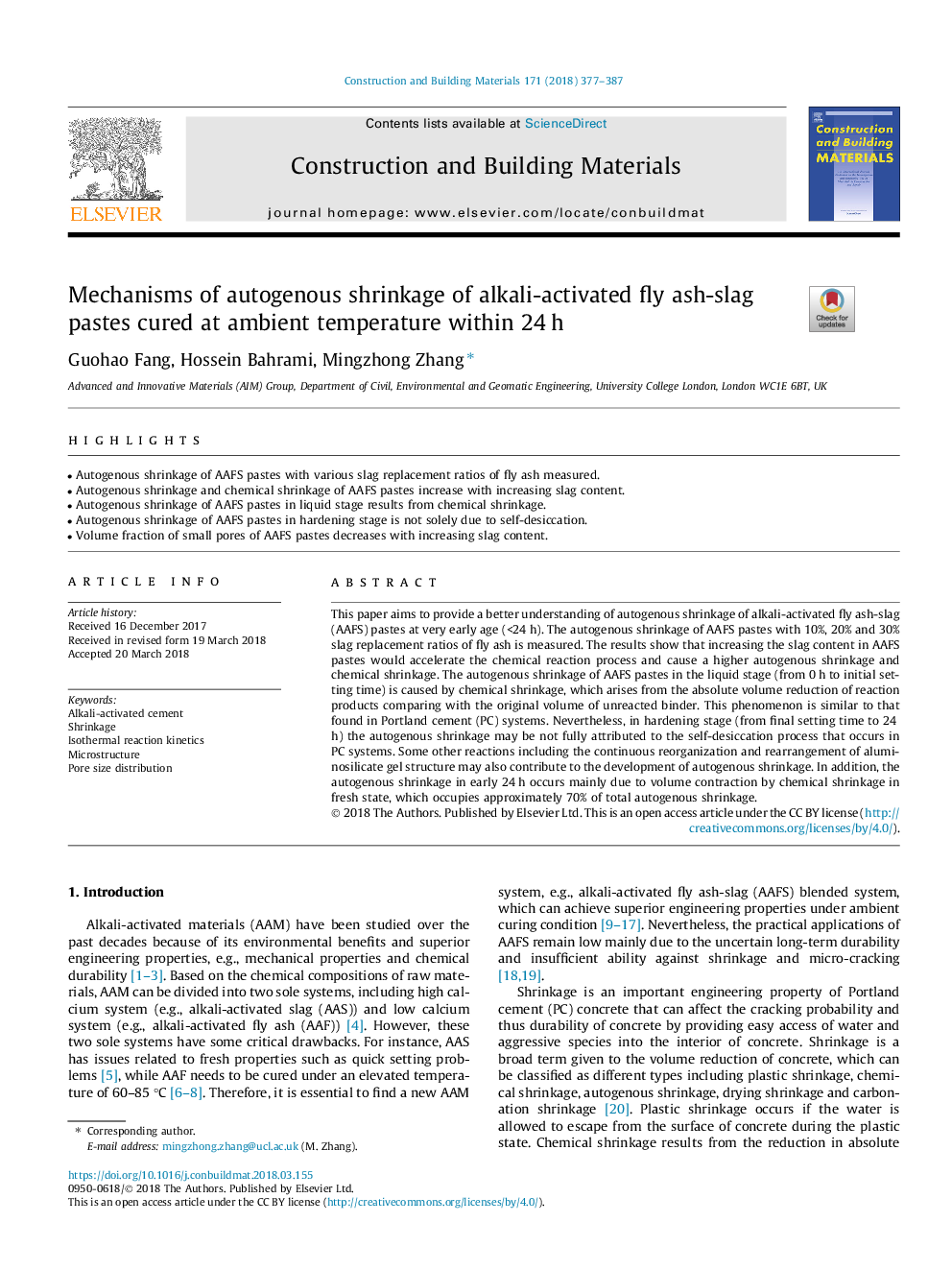| Article ID | Journal | Published Year | Pages | File Type |
|---|---|---|---|---|
| 6714092 | Construction and Building Materials | 2018 | 11 Pages |
Abstract
This paper aims to provide a better understanding of autogenous shrinkage of alkali-activated fly ash-slag (AAFS) pastes at very early age (<24â¯h). The autogenous shrinkage of AAFS pastes with 10%, 20% and 30% slag replacement ratios of fly ash is measured. The results show that increasing the slag content in AAFS pastes would accelerate the chemical reaction process and cause a higher autogenous shrinkage and chemical shrinkage. The autogenous shrinkage of AAFS pastes in the liquid stage (from 0â¯h to initial setting time) is caused by chemical shrinkage, which arises from the absolute volume reduction of reaction products comparing with the original volume of unreacted binder. This phenomenon is similar to that found in Portland cement (PC) systems. Nevertheless, in hardening stage (from final setting time to 24â¯h) the autogenous shrinkage may be not fully attributed to the self-desiccation process that occurs in PC systems. Some other reactions including the continuous reorganization and rearrangement of aluminosilicate gel structure may also contribute to the development of autogenous shrinkage. In addition, the autogenous shrinkage in early 24â¯h occurs mainly due to volume contraction by chemical shrinkage in fresh state, which occupies approximately 70% of total autogenous shrinkage.
Related Topics
Physical Sciences and Engineering
Engineering
Civil and Structural Engineering
Authors
Guohao Fang, Hossein Bahrami, Mingzhong Zhang,
